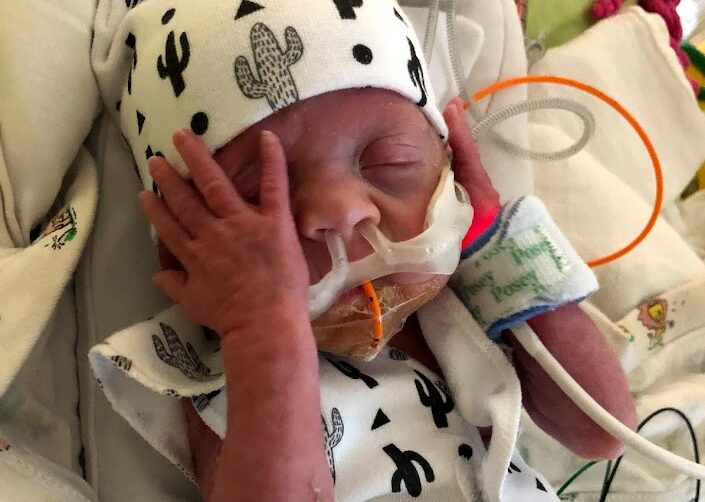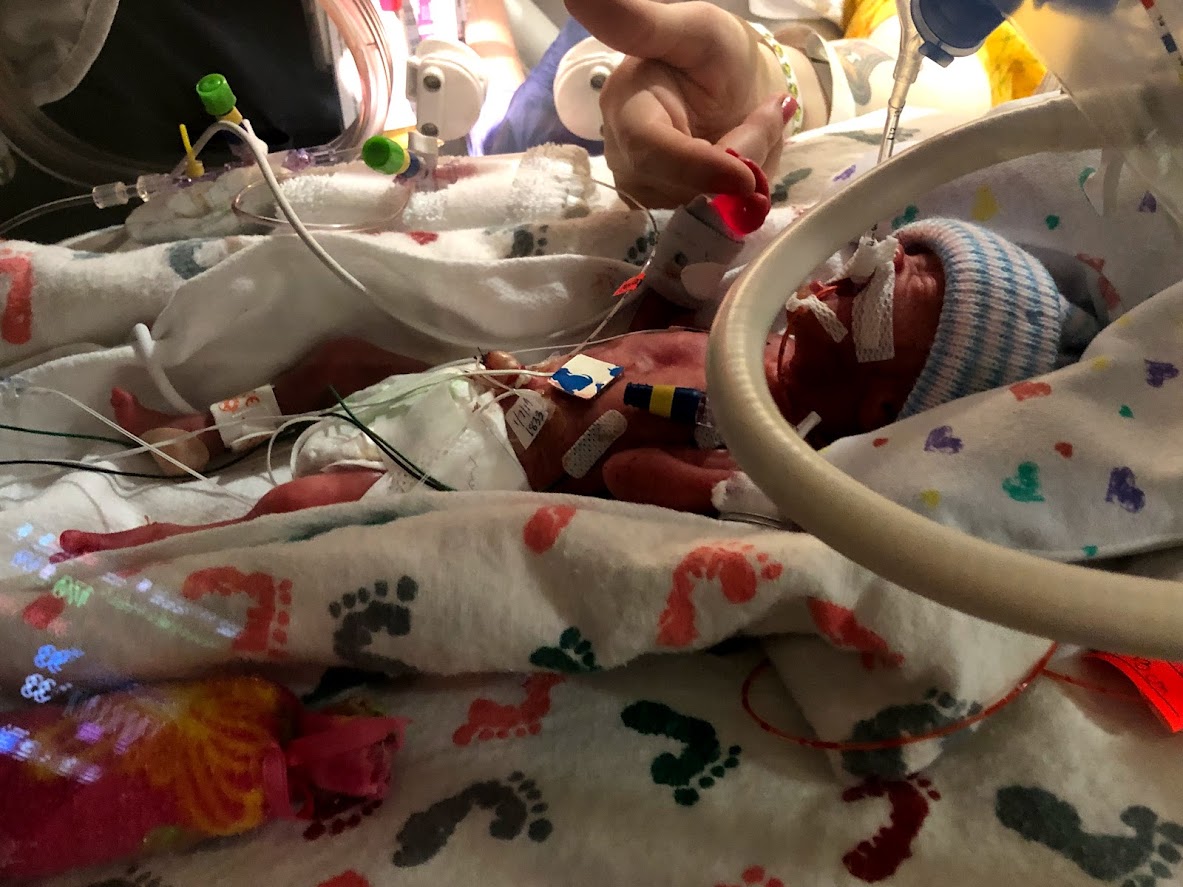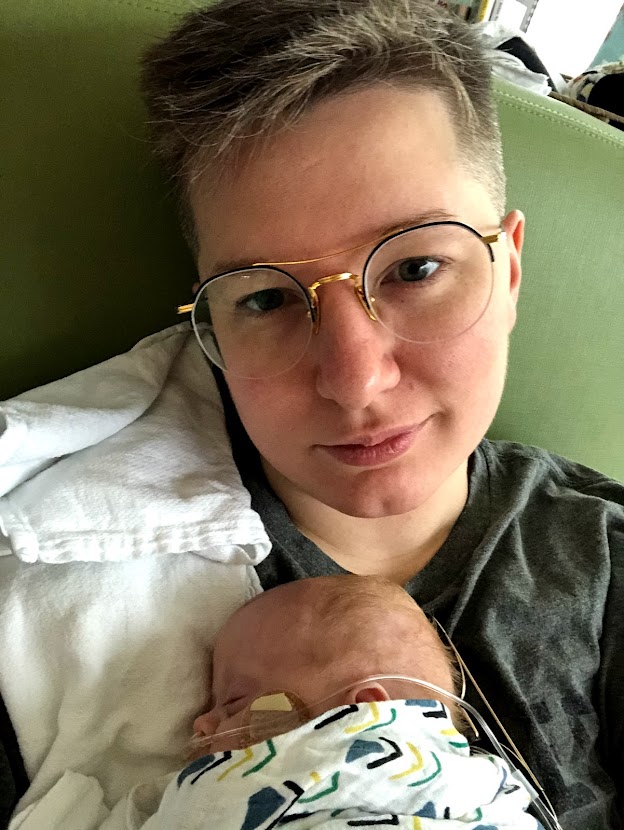
The things we say when we have no words
TW: birth and medical trauma

In the weeks that followed, there were times I didn't think I was taking either one of the home.
And yet, having banked limited PTO and an employer with no parental leave for non-birthing parents, I faced an impossible decision: return to work or take short-term leave at a fraction of my salary.
We feigned a sense of control as we weighed the options in Hollis' hospital room, but we both knew we had only one real option. I would return to work to cover our expenses, including the extra mouth we now had to feed and our ever-climbing medical debt.
Gratefully, my boss at the time is a a lovely human. She offered me the flexibility to work remotely from the hospital until my wife was discharged.
Two major abdominal surgeries and countless doses of medication later, my wife was released with a wound vac and a home care nurse. And I returned to the office.
Every morning, I would work remotely until AM rounds were complete, and then I would hurry to the office for my next meeting.
I honestly don't know how I survived those days. It was probably a combination of highly caffeinated beverages, loads of grace from my team, and the primal drive to live on.

Looking back at the photos from that time, I just want to hug that 27-year-old kid trying their best to smile through the fear and fatigue.
Every day I passed well-meaning co-workers in the hall who asked, "How are you doing?" or "How are the baby and Hollis?" At first, I stopped to give every inquirer the most recent update on test results and vent settings and milestones.
Most of the time, I left what I thought should have been a restorative, connective conversation feeling more exhausted and alone than ever. But with a few friends I felt seen and held and cared for.
I learned what so family survivors of trauma have learned before me. Not everyone can handle and hold your truth. Not everyone deserves your story. And you don't owe anyone an honest answer when they ask how you're doing.
Not everyone can handle and hold your truth. Not everyone deserves your story. And you don't owe anyone an honest answer when they ask how you're doing.
So I came up with an honest but concise refrain. Whenever someone asked out of politeness, "How are you?" I would respond with "Hanging in there."
Two years into this pandemic, and I see that familiar weariness in the mirror every day. I see it in my wife's eyes. I see it on my Zoom calls. And although each of us is experiencing a collective trauma, the impact has been anything but homogenous.
Each of us has layers of intersectional oppression and privilege. And although everyone has been impacted by fear and change, some folks have benefitted greatly during this time and others have endured immeasurable loss.
Not everyone is sitting in the same darkness together. And in my experience, few have the courage and strength to step out of their own light to sit with those who are suffering.
You don't owe those folks a thing.
So this week, when they politely ask, "How are you?", you have permission to answer, "Hanging in there."
Save your truth for those who have earned it.
